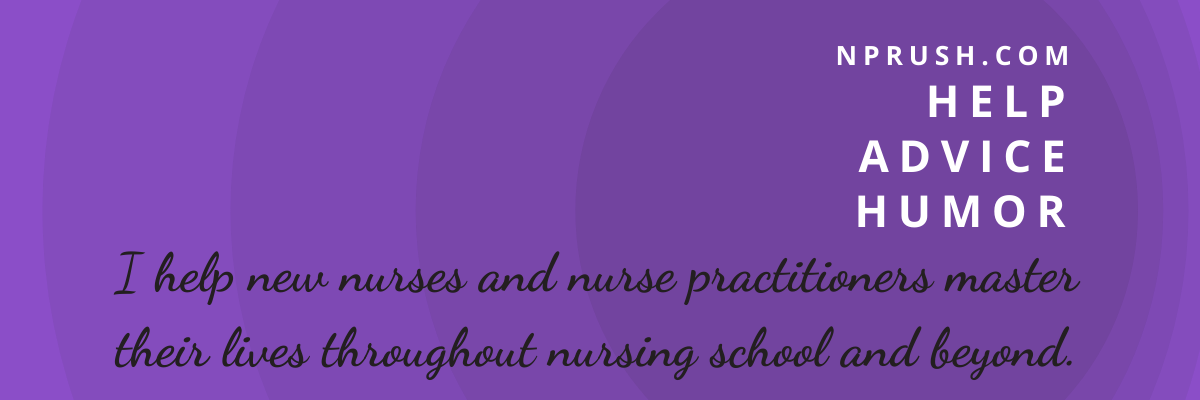So many nurses claim they are “just not writers”. But you can’t finish nursing school without writing a paper . . . or twenty.
Whether the paper you have to write is your weekly topic summary, your keystone project, or your final research presentation, here are some solid writing tips that will help.
Please know, these insights do not replace a trained editor or proofreader for important works like a dissertation or master’s thesis. Be smart and use an editor for large projects, even after you’ve already used Grammarly (which I recommend for all writers).
1. Read your paper aloud.
Reading aloud helps us find mistakes, missing words, and clunks in syntax. When reading silently, our brain autocorrects and skims over the missing pieces. Reading aloud makes us pay attention to the details, so it’s obvious when phrases fall short, incorrect words are used, or typos abound. Read aloud to yourself or to someone else–another pair of ears never hurt. Reading aloud to someone else has the added advantage of a fresh perspective. As the writer, we tend to go over our work so much that we become immune to the flops and stalls that others pick up on in an instant.
2. Learn to transition.
Transitioning from one idea to another can be tricky. Transitions have to be logical, connecting not only one paragraph to the next but also linking to the overall theme of the paper. Transitions don’t have to be heavy-handed, serious, or wordy. They can be simple–just a few sentences between sections. Transitions address the information you just presented and how it relates to what you’ll discuss next.
When transitioning think about the purpose of the transition. Is the intent to show a cause and effect? A comparison? A contrast? Is the purpose of persuading or revealing an opinion? Then use the appropriate transitional word or phrase to help.
Here are some examples of transition words:
Cause and effect: thus, therefore, consequently, so, because
Comparison: equally, likewise, in the same wayContrast: nevertheless, alternatively, yet, even so
Persuasion: Of course, clearly, surely, for this reason, certainly
Opinion: I think, I believe, it seems likely, in my experience
Use transition words as a starting point; they can’t carry the entire load of making your point. That’s up to you. The best tip on transitions to remember is don’t belabor the point. Transitions should be one to two sentences (three or four for heavy subject matter). Fixing transitions in your writing can go a long way in improving the flow and clarity of your work. For a complete list, google ‘transition words.’

3. Mind your outline . . . I mean structure.
I know… everyone hates outlining, so let’s use the word structure instead.
The structure of an academic paper typically includes an introduction, a body, and a conclusion.
ASIDE: The great part about nursing school is that you’ll most likely get a rubric from the instructor for each paper you’re expected to write. A rubric often includes not only the structure of the paper but performance indicators, rating scales, and indicators. Sometimes the rubrics aren’t specifically outlined, but they are key to getting the grade you want. (See 3 Tips for Writing Your Next Research Paper in Nursing School).
First, the introduction should include background information on the topic, include your objectives, and spell out your thesis. At the end of the introduction, you can write, “This paper will include a discussion of the following points: X, Y, and Z.” It’s really that easy.
The body is the meat of the paper. There are several ways to structure the body portion, but an easy and logical method is to use the ascending information method. Order of complexity, order of importance, and time order are the three basic ways to shape ideas into ascending order.
If your topic is complex, you’ll start with the simple ideas and move along to the most complex ideas. If your topic is extensive, you’ll start with the less important ideas and move toward the most important ones. If your topic is timely, with time constraints that define it, for example, then start at the beginning with a brief history, summarize the topic, then move in chronological order toward your main point.
Finally, the conclusion. This is possibly the easiest part! The conclusion is a simple reminder (not an entire retelling) of your main point and often includes your strongest argument. But remember this, the best conclusions aren’t really conclusions at all. The best conclusions leave the reader with somewhere to go afterward, with curiosities that need to be scratched, with questions that need to be pursued. Think about the future of your topic and what comes next. Direct the reader back to the holes in your main points, revealing areas for potential research. Slid in a query challenging the tight matrix of your main point, revealing that scientific interpretation is never as solid as it seems.
Cheers,
Joolz
Check out more writing help for nursing school:
3 Tips for Writing Your Next Research Paper in Nursing School





